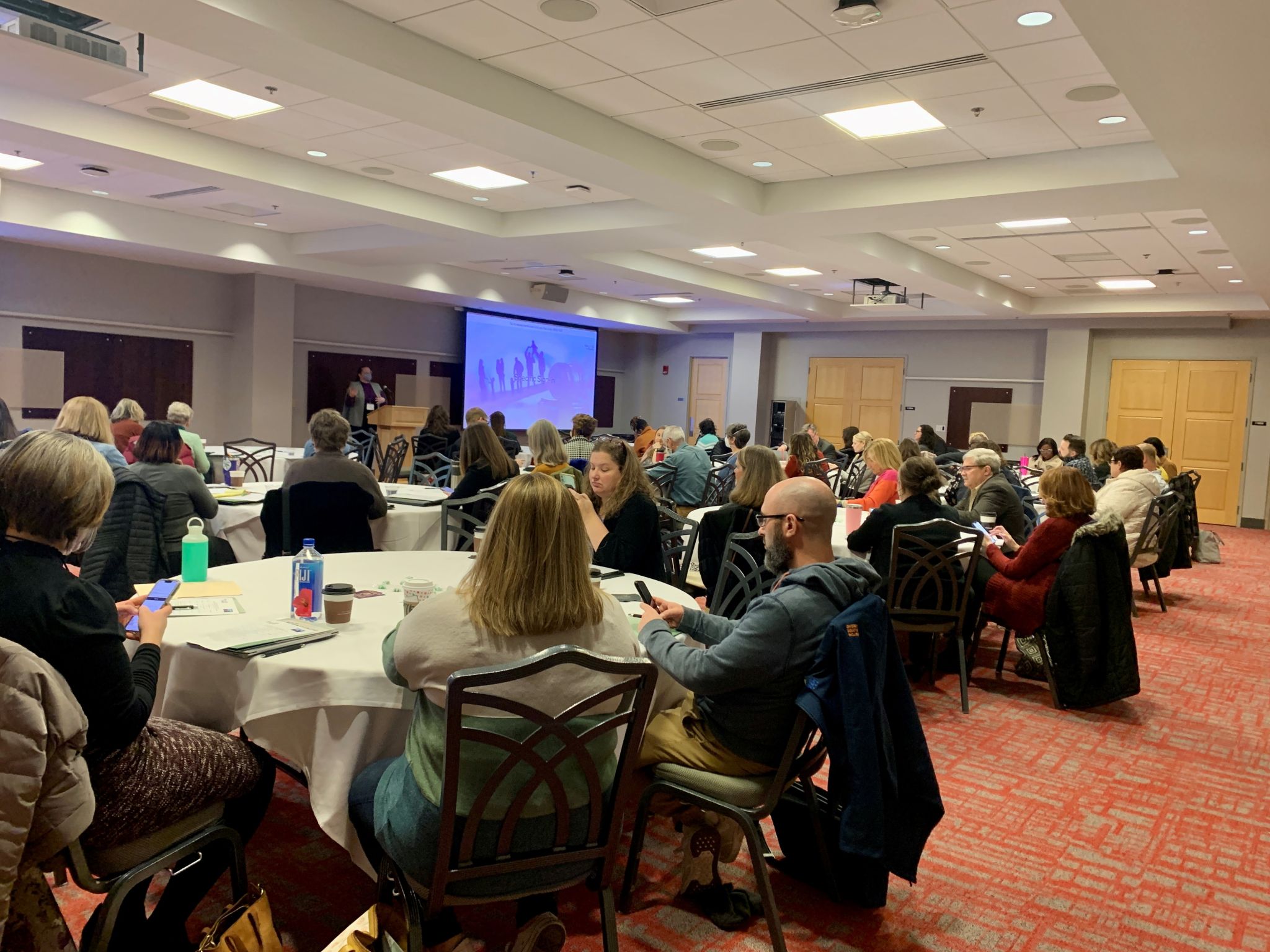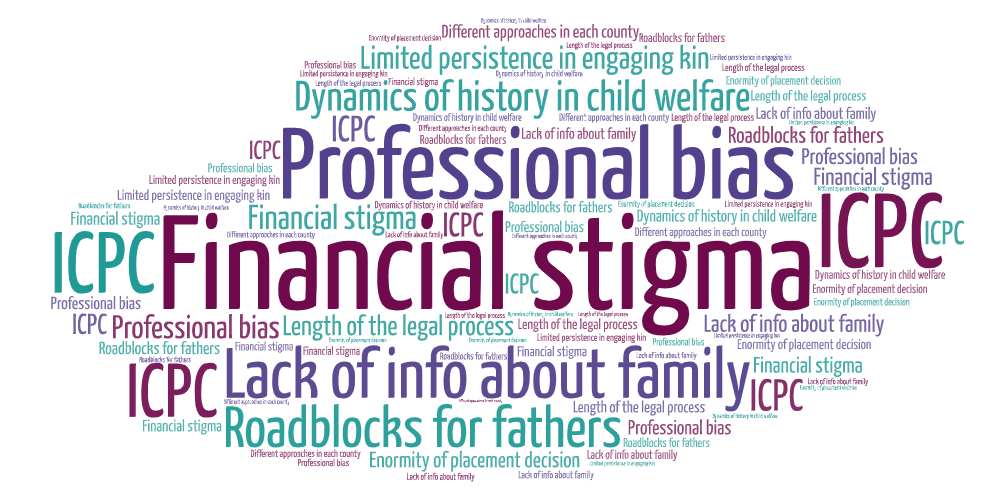Kin-first Culture in the Courtroom
Nearly 50 judicial stakeholders from across the state came together in Columbus on January 11 to build community and explore strategies for reducing judicial barriers to kin and relative caregiving.

First, attendees began the day by reflecting on the requirement that agencies and courts prioritize family relationships. It is not an afterthought. Services and medications do not solve problems, as the video shared emphasized. Relational wealth and family connections help children heal.
Speakers asked:
What does permanency mean to you?

Rather than ask “do you want to be adopted?,” people can ask “Who are the people you feel safe with? Where do you feel like you belong? Who are the people that will stand by you no matter what? Who do you miss?”
Then, participants explored ways to give families a set at the table. Relatives and kin are invited, welcomed as active participants, valued and treated as allies at a quality hearing. Youth, fathers and paternal relatives should be part of this.
Next, attendees explored Kinnect’s Guiding Principles for Creating a Kin-First Culture in the Courtroom:
- Lead with kin-first philosophy
- Develop written policies and protocols – recognize unique circumstances
- Identify and engage kin for children at every step
- Create a sense of urgency for first placement – with kin
- Support permanent families for children
- Create a strong community network to support kin families
Facilitators asked participants:
What barriers do you encounter to kinship caregiving in the courts process?

For the remainder of the day, attendees chose breakout groups to attend based on roles. There, they identified barriers they experience in their roles and brainstormed solutions that could help. After lunch, attendees separated into breakout groups again to brainstorm how to create a resource library for creating a kin-first culture in the courtroom, identifying training that would be beneficial, and identifying mentoring and peer support that would be helpful within the legal system. Stay tuned for more information on this project. You can sign up for Kinnect to Family’s newsletter here.
